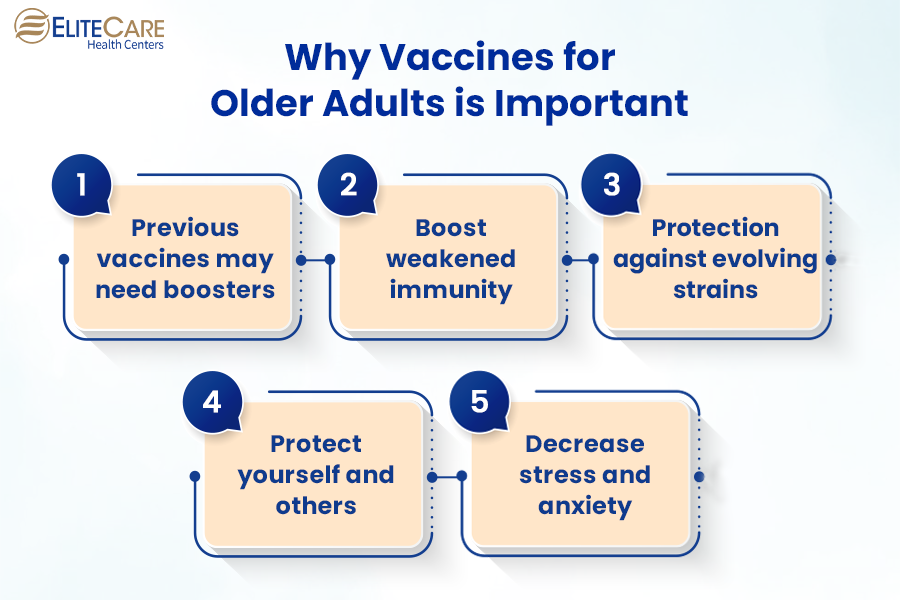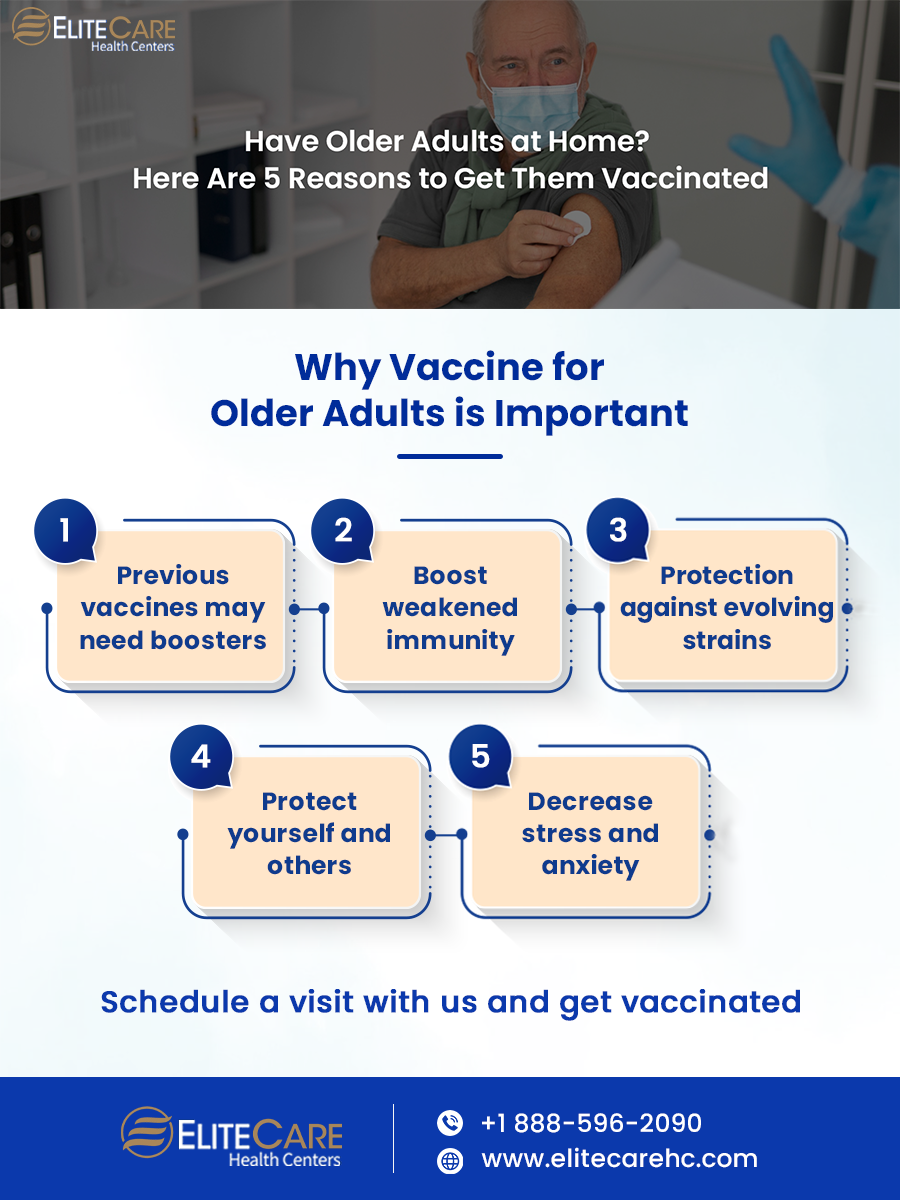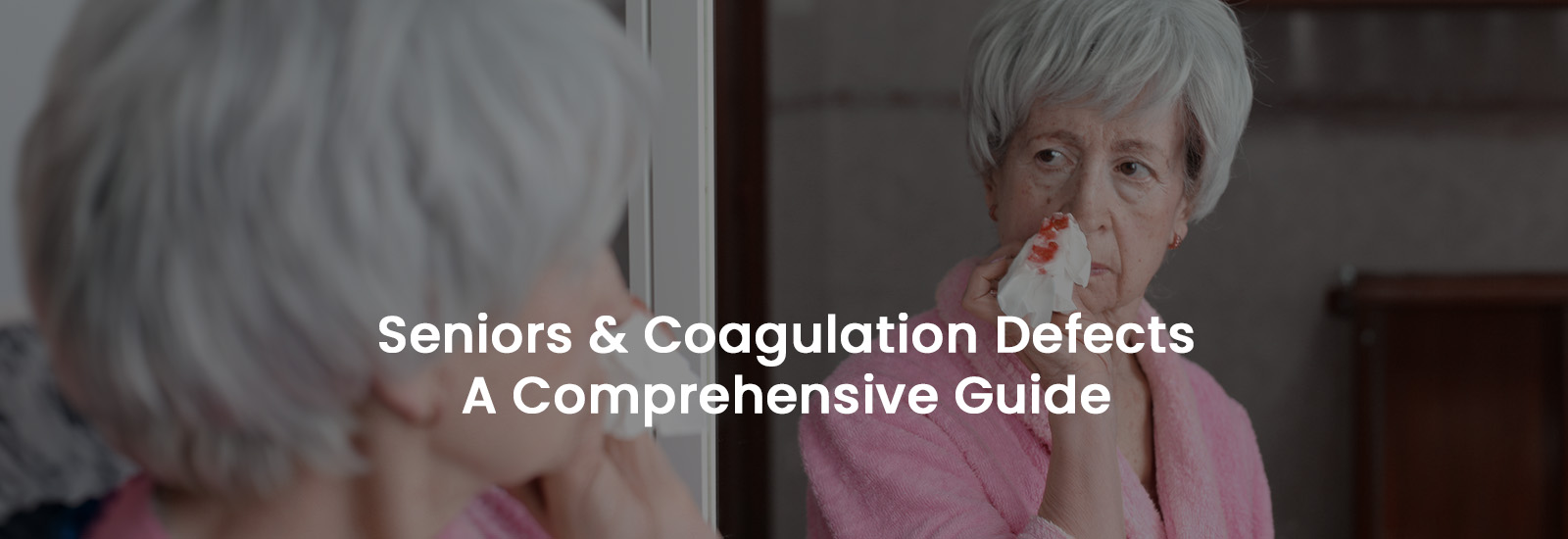
Immunization is a process that protects against certain diseases through vaccination. Although the awareness about child vaccination is prevalent, vaccines for adults are still a topic people tend to avoid. It is specifically important for older adults aged 65 or above to get immunized. This is because their immune system weakens over time, and it is more difficult to fight off infections, which can turn deadly. Vaccines protect the body against infectious diseases by imitating an infection. It alerts and teaches the immune system to combat a future infection.
Vaccine-preventable diseases or VPDs have a significant impact on adult mortality. In a meeting held by the World Health Organization (WHO) in 2017, vaccination for older adults was acknowledged as a priority on the global platform. Today, vaccines for adults have become a global topic that requires immediate action.
Why Vaccines for Older Adults Is Important

Previous Vaccinations May Require Boosters
The most common health issue among the elderly is influenza or the common flu. In recent years, around 70 to 85 percent of seasonal flu-related deaths are reported in people aged 65 years and older. Although flu vaccination is quite common for a child, the effect of childhood vaccines can wear off over time. Besides, vaccine-preventable diseases like tetanus can be fatal for an older adult in chronic conditions such as heart disease or diabetes.
Since flu vaccines are updated yearly, seniors should get one every year for maximum protection against the ever-changing flu.
The Td or Tdap vaccine (tetanus, diphtheria, and pertussis) are some of the childhood vaccines that should also be revised for older adults to ensure that the body still holds immunity to these dangerous diseases.
Read More: The Most Common Health Concerns for Seniors
Boost Weakened Immunity
As you age, the immune system tends to weaken with time, especially if there are any other underlying conditions. With a weak immunity, older adults are more prone to getting viral infections. A CDC report states that over 60 percent of seasonal flu-related hospitalizations occur in people 65 years and older.
Vaccinating older people is the best way to prevent these viral infections. It will enhance their body’s natural ability to ward off infections which can be fatal at times.
Get Protection Against Evolving Strains
Older adults should prioritize getting the updated and newly invented shots to fight against past infections that have developed over time, such as the flu, Covid-19, and more.
The chances of every 1 in 3 people in the United States developing shingles (a viral infection) multiple times in their life is much higher than one could imagine. Once someone gets shingles, the virus remains in their body even after recovery. Therefore, the virus could become active again. These complications are easily avoidable with adult immunization. Ask your doctor about the shingles vaccine.
Protect Yourself and Others
People often worry more about their families than themselves, especially the younger ones. Being more vulnerable to infectious diseases, older adults become active carriers of viruses among people while socializing.
Besides, herd immunity is possible to achieve mainly depending on vaccination. So, getting the older adults immunized against certain viruses will not only protect their close ones but also contribute to the community wellness as a whole.
Decrease Stress and Anxiety
Immunizing older adults through vaccination ensures protection against common infections. Worrying about catching a virus that could be potentially life-threatening is stressful and unnecessary, if there is a vaccine available. Being prepared is a great way to reduce stress and anxiety that will only harm the body.
Furthermore, if a senior catches the flu and ends up in the hospital with pneumonia, there will be physical, emotional, and financial stress. Taking precaution and getting vaccinated helps reduce the chances of a worsening condition and hefty hospital bills.
Risks and Safety Measurements
The primary concern about older adult vaccinations is safety and assurance. Vaccines are the results of years of testing and require the approval by the Food and Drug Administration (FDA). Although side effects are common, they are usually mild and go away in a few days. The most common side effects include soreness, redness, or swelling. Severe side effects are rare in adult vaccination.
However, before opting for any vaccine, older adults should have a discussion with a doctor or pharmacist about their health history. It will ensure safety from any past illnesses, treatments, and allergies. Senior health clinics are the best option to get proper guidance on adult vaccinations.
Conclusion
Immunization provides the elderly with a healthier life. Vaccinating older adults will keep them safe while also spreading positivity about vaccination to the younger ones. Seeing the older members prioritizing immunization will also encourage others to do the same. The more people will get aware of immunization through vaccination, the easier it will be to fight the deadly diseases.






